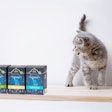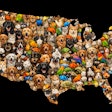
The COVID-19 pandemic disrupted supply chains worldwide, especially those involving imports and exports. While the dog, cat and other pet food industries generally proved resilient, the ongoing pandemic continues to interrupt normal international commerce. Researchers investigated pet food procurement and distribution logistics during the pandemic in Indonesia. Although pet food supplies overall were not hindered for the distributor under observation, the researchers identified certain requisites for smooth importation and exportation during the pandemic. While their study involved dog, cat and rabbit food supplies to a single pet food distributor, the results may reflect similar situations globally. However, even within specific countries, each pet food ingredient suppliers faces unique circumstances. Nevertheless, the researchers identified keys to avoiding pet food importation and exportation delays during the pandemic.
“Every pet food distributor must know in detail their needs every month and year,” study co-author Tities Setyorini of the Trisakti Institute of Transportation and Logistics in Jakarta, Indonesia and import administrator for PT. Harapan Maju Indah, said. “Apart from quantity, they must also determine the quality and when the goods should be delivered. The distributor then communicates with the supplier to ensure that they can fulfill the distributor's wishes. So in my opinion, it depends on the ability of each supplier whether it can still meet the needs of distributors during a pandemic or not."
The journal Advances in Transportation and Logistics Research published the study.
Pet food import and export paperwork key to speed
Pet food importers and exporters can avoid delays in imports and exports during the pandemic, she said. Distributors must send a purchase order further ahead of time to the supplier so that the supplier can prepare multiple orders. Smooth import activities depend on the documents.
“If the documents required for imports are appropriate and complete, it is certain that import activities can run smoothly,” she said. “To avoid delays in import activities, distributors must ensure the draft of the invoice, packing list, and other supporting documents are in accordance with what was ordered, starting from the item, quantity, and estimated delivery. If the draft is not suitable, it can be immediately revised and informed to the supplier who will then make the final documents immediately.”
As the pandemic continues, pet food companies may need to compare suppliers’ performance to before the disease’s outbreak to ascertain if they can still meet a company’s needs.
“Communicate with suppliers to ascertain whether they can still fulfill existing orders or not,” she said. “By making a comparison table, it will be known how the ability of suppliers before and during the pandemic. Thus distributors can evaluate suppliers and fix any deficiencies.”
Paperwork slows Indonesian pet food imports and exports during pandemic
To study Indonesian pet food imports and exports during pandemic, Setyorini and her team examined PT Harapan Maju Indah’s purchase orders before and during the COVID-19 pandemic. In particular, they examined three Thailand-based suppliers ability to provide dog, cat or rabbit food. The suppliers ability to supply good was not affected during the pandemic. Nor where the abilities of the suppliers to ship goods to and from ports. However, the pandemic did seem to incur delays of import documents sent by the supplier, which causes the goods to be kept longer at the port. These delays result in additional costs and the goods took a longer time to arrive at the warehouse than before the pandemic.



















